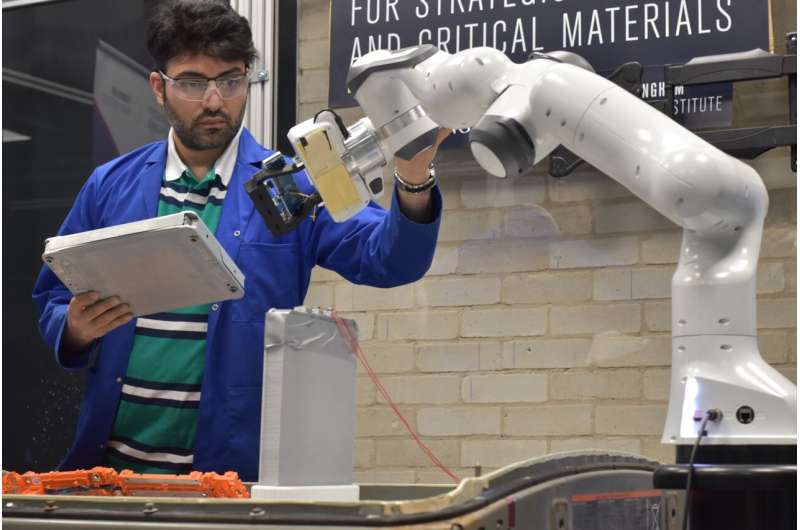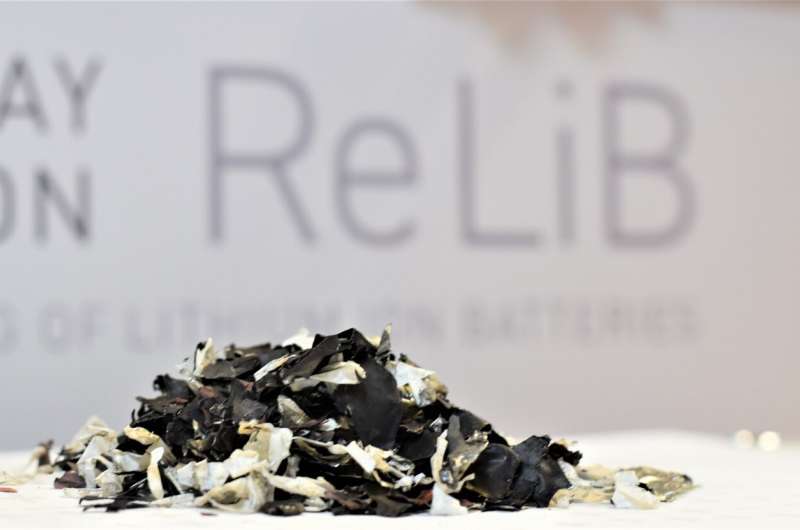Global approach is needed on battery regulation
New European Union regulations on batteries could offer a huge boost to the global decarbonisation mission—but only if it leverages its political and economic weight to ensure a fairer global marketplace.
According to a team of scientists and researchers writing in Science, the new regulations, due to come into force from January 2022, have the potential to unify policy on approaches such as recycling, use of recycled raw materials, and creating a circular economy.
Contributing to the study were experts at Newcastle University, the University of Birmingham, Circular Energy Storage Research and Consulting, University of California, Davis and the National Institute of Clean and Low Carbon Energy (NICE) America Research.
The European Union is a significant market for Electric Vehicles globally, and the effects of its regulation will be felt by battery supply chains in many other countries, including the United Kingdom, even though it has left the European Union.
Although these rules are both necessary and welcome, whilst well-intentioned, the researchers argue, their effects are hard to predict and could result in a competitive disadvantage for European companies. This is because the EU must operate in the global marketplace where there is an imbalance between new and mature markets and uncertainty caused by the rapid rate of growth and innovation in the lithium-ion battery (LIB) market.

China, for example, has a well-developed LIB market, with relatively strict regulations around recycling and decarbonising the supply chain. In the US, in contrast, although electrification of transport has been declared a priority, legislation to promote a circular economy in the sector is lagging behind both China and the EU.
Dr. Oliver Heidrich, of Newcastle University, led the study. He says: “Balancing the challenges of climate change, sustainability and competitiveness is a difficult task. Formal assessments along the supply and value chain from raw material extraction, achieving carbon reductions targets to final disposal are needed to ensure social, environmental and economic aspects are addressed successfully”.
Companies that are able to comply with more stringent regulations have a big competitive advantage in these markets. This is particularly true in China where there are well-established, tougher domestic requirements. Companies in markets where there is ready access to both virgin and recycled materials—such as China and South Korea—are also likely to have an advantage over EU companies, where supply chains are less well-developed and may still rely on imported materials.
The US shares the EU’s situation with a less developed supply chain, however battery makers will retain a higher degree of freedom to operate which can be crucial for innovation in both battery technology and electric mobility.

“While it is critical to ensure a high degree of sustainability in the battery supply chain we must not forget that the end game is a decarbonised and less polluting transportation sector,” says Hans Eric Melin, of Circular Energy Storage Research and Consulting. “By raising the bar to a higher level than for almost any other product there is a significant risk that the European battery industry, which is well behind global leaders, will struggle to keep up with the required pace. This could limit automotive makers’ ability to produce electric vehicles at the scale required by 2030 and might also cause distortion of innovation and a slow down of investments.”
Global standards, argue the researchers, are the only way to make this essential supply chain both predictable and powerful. The new, advanced standards set out by the EU, together with its significant share of the EV market, could give it leverage to lead the way in setting such standards.
“The EU Battery Regulation has admirable intentions, but unintended consequences could be felt by manufacturers, recyclers and other actors across the world. Whilst difficult to achieve, and politically challenging, a co-ordinated, global approach would ensure a more rapid and effective transition to electric transport,” says Dr. Gavin Harper, of the University of Birmingham
The European market can provide significant leverage to set standards across the globe in order to stimulate innovation in the areas of cascaded use and recycling and serve as a steppingstone to more formal global standards. Policies and legislations that address environmental or social issues are very much needed and do need to consider the unintended consequences as much as the in-tended consequences
Europe powers up electric car battery drive
H. Eric Melin at Circular Energy Storage Research and Consulting in London, UK el al., “Global implications of the EU battery regulation,” Science (2021). science.sciencemag.org/cgi/doi … 1126/science.abh1416
Citation:
Global approach is needed on battery regulation (2021, July 22)
retrieved 22 July 2021
from https://techxplore.com/news/2021-07-global-approach-battery.html
This document is subject to copyright. Apart from any fair dealing for the purpose of private study or research, no
part may be reproduced without the written permission. The content is provided for information purposes only.
For all the latest Technology News Click Here
For the latest news and updates, follow us on Google News.
